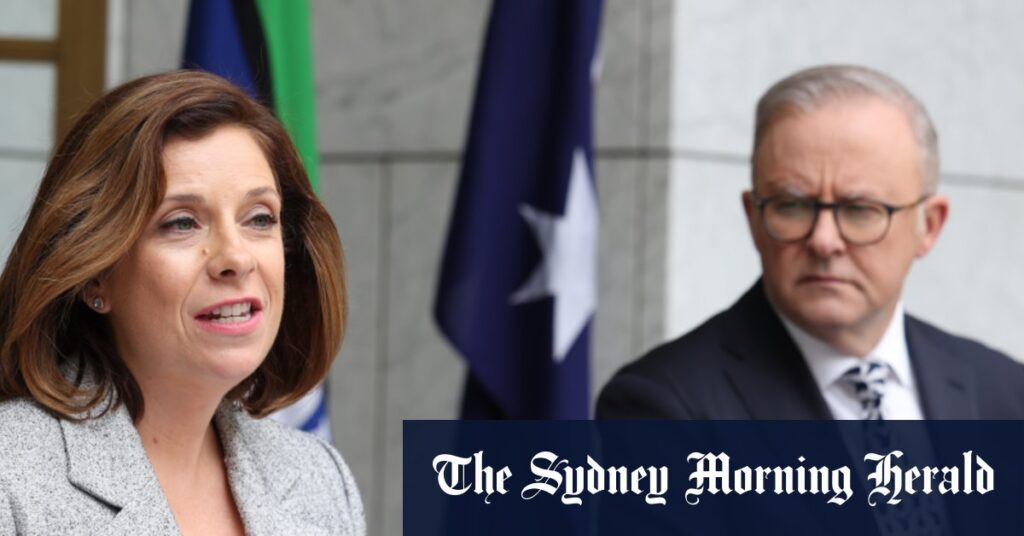Cabinet Reshuffle Paves the Way for Greater Queensland Representation
Recent changes in the government lineup align with ongoing discussions about a potential reshuffle announced over the past six weeks. Notably, a report on December 1 suggested that Bill Shorten’s responsibilities would likely be distributed among several ministers.
This reshuffle preserves the factional balance in the cabinet, appointing another member from the Right faction to replace Shorten. Elevating the profile of Katy Wells underscores a significant boost for Queensland representation in the government.
Wells joins the ranks as the third minister from Queensland, alongside Treasurer Jim Chalmers and Employment Minister Murray Watt.
Meanwhile, Defence Personnel Minister Matt Keogh, a Western Australian from the Right faction, is anticipated to receive a promotion in any upcoming reshuffle.
Prime Minister Anthony Albanese is keen to quell concerns that Shorten’s exit might negatively impact the National Disability Insurance Scheme (NDIS).
Commitment to NDIS Remains Strong
“When Labor established the NDIS, we promised individuals with disabilities, their families, and caregivers that we would not abandon them. We are committed to keeping that promise,” Albanese emphasized.
He added, “As a nation, we still have much to accomplish in ensuring that individuals with disabilities are recognized and treated fairly in healthcare, education, and employment.
“The NDIS has transformed countless lives; however, our work is far from over, as the previous government allowed the scheme to stray off course.”
After his successors are sworn in on Monday at Government House, Shorten will transition out of his ministerial role, preparing to assume his new position as Vice-Chancellor at the University of Canberra. He previously announced his intention to start the role before the academic year commences.
Investments and Future Challenges for the NDIS
Shorten successfully secured an additional $1 billion for the NDIS during December’s mid-year budget, aimed at increasing staffing to expedite application reviews and counteract fraud, ultimately seeking long-term savings.
Despite some resistance from disability advocates, the government faces pressing warnings that annual expenses for the NDIS could surge to $97 billion over the next ten years. After experiencing a 12% growth this financial year, following a peak of 23% at the end of the Coalition’s term, Labor is intent on curbing this to an annual growth rate of 8%.
Stay informed on federal politics with expert commentary and insights.


